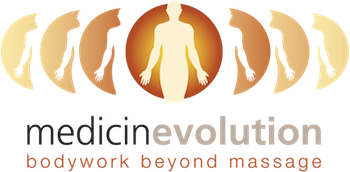Did you know that over 50 million adults in the United States experience chronic pain daily due to disease? While traditional medical approaches offer relief, many seek alternative methods for holistic pain management. Homeopathy, a natural approach focusing on individualized remedies to stimulate the body’s healing process, is gaining popularity in this realm. This blog post delves into the role of homeopathy in comprehensive pain management strategies, exploring its effectiveness and benefits for those seeking alternatives to conventional medicine and wellness.
Understanding Homeopathy
What Is Homeopathy?
Homeopathy, a form of alternative medical treatment, is based on the principle of “like cures like.” This means that doses of a substance that causes symptoms in a healthy person can be used to treat similar symptoms in someone who is unwell. Homeopathic remedies are highly diluted substances from plants, minerals, or animals.
These remedies come in various forms such as pellets, tablets, and liquids. When using homeopathy for pain management, practitioners select remedies based on the individual’s specific symptoms and overall health condition. The goal of homeopathic treatment methods is to stimulate the body’s natural healing processes.
How Does Homeopathy Work In Pain Management?
In holistic pain management strategies, homeopathy aims to address not just the physical aspect but also the emotional and mental elements contributing to pain. By considering all aspects of an individual’s well-being, homeopathic treatments seek to provide comprehensive relief from pain without merely masking symptoms.
One significant advantage of incorporating homeopathy into holistic pain management plans is its minimal side effects compared to conventional medications. It can be safely used alongside other treatments without interference or adverse reactions. Patients often find relief through personalized homeopathic remedies tailored to their unique experiences with pain.
The Mechanism Of Action In Homeopathy
Activation Of The Body’s Healing Response
Homeopathy operates on the principle that like cures like. This means a substance that causes symptoms in a healthy person can be used to treat similar symptoms in someone who is unwell. For instance, if a plant induces fever-like symptoms, it could be utilized to alleviate fever when prepared homeopathically. By triggering the body’s innate healing response through these diluted substances, homeopathic remedies aim to address the root cause of pain rather than merely alleviating its symptoms.
Homeopathy focuses on treating individuals as unique entities rather than just their ailments. This personalized approach considers not only physical symptoms but also emotional and mental aspects affecting one’s well-being. For example, two people with migraines may receive different homeopathic treatments based on their individual experiences and emotions surrounding the condition. By addressing all aspects of an individual’s health, including lifestyle factors and emotional well-being, homeopathy aims to provide comprehensive pain management strategies tailored to each person.
Minimal Side Effects And Non-Invasive Nature
One significant advantage of incorporating homeopathy into holistic pain management strategies is its minimal side effects compared to conventional medications. Since homeopathic remedies are highly diluted and work by stimulating the body’s natural healing mechanisms, they are generally safe for most individuals without causing adverse reactions or drug interactions commonly associated with pharmaceutical drugs. Unlike invasive procedures or surgeries often used for chronic pain management, homeopathy offers non-invasive treatment options that prioritize gentle healing methods over aggressive interventions.
Pros:
- Personalized treatment approach
- Minimal side effects
- Non-invasive nature
Cons:
- Limited scientific evidence
- Slower onset of action compared to conventional medicine
Exploring The Role Of Homeopathy In Pain Management
Holistic Approach
Homeopathy takes a holistic approach to pain management, considering the physical, mental, and emotional aspects of an individual. It aims to treat the root cause rather than just alleviating symptoms. For instance, if someone with chronic back pain seeks homeopathic treatment, the practitioner will not only address the physical discomfort but also explore potential emotional stressors that could be contributing to the pain.
- Considers physical, mental, and emotional aspects
- Treats root cause instead of just symptoms
Individualized Treatment
One significant aspect of homeopathy in pain management is its individualized treatment approach. Rather than providing a one-size-fits-all solution for pain relief, homeopathic practitioners tailor remedies based on a person’s unique symptoms and characteristics. For example, two individuals experiencing migraines may receive different homeopathic treatments depending on factors such as headache location or accompanying symptoms.
- Tailored remedies for each individual
- Based on unique symptoms and characteristics
Natural Remedies
Another key feature of using homeopathy in holistic pain management strategies is the use of natural remedies derived from plants, minerals, or animals. These substances are highly diluted but believed to retain their healing properties. Arnica montana (leopard’s bane) is a common remedy used for muscle soreness and bruising in homeopathy due to its anti-inflammatory properties.
- Utilizes natural substances like plants and minerals
- Highly diluted yet effective
Chronic Pain Management With Homeopathy
Holistic Approach
Homeopathy approaches pain management holistically, considering the individual’s physical, mental, and emotional state. It focuses on treating the root cause of pain rather than just alleviating symptoms. For example, if someone experiences chronic back pain due to stress and anxiety, a homeopath would consider these factors when prescribing treatment.
Homeopathy aims to restore balance in the body by stimulating the body’s natural healing abilities. By addressing imbalances at a deeper level, it can help manage chronic pain more effectively. This approach is particularly beneficial for individuals seeking alternative therapies or those looking for complementary treatments alongside conventional medicine.
Individualized Treatments
In homeopathy, each person is treated uniquely based on their specific symptoms and overall health profile. The treatment plan is tailored to address not only the physical manifestations of pain but also the emotional and psychological aspects that may contribute to it. This personalized approach ensures that patients receive customized care that suits their individual needs.
One of the key principles of homeopathy is “like cures,” where substances that could produce symptoms in a healthy person are used to treat similar symptoms in someone who is unwell. This concept underlines the importance of individualization in treatment plans and highlights how homeopathic remedies are carefully selected based on each person’s distinct experience of pain.
Integrative Medicine And Holistic Pain Management
Complementary Approach
Homeopathy can be a valuable component in holistic pain management strategies, working alongside conventional treatments. This complementary approach focuses on treating the whole person rather than just the symptoms. By addressing physical, emotional, and mental aspects simultaneously, homeopathy aims to restore balance and promote overall well-being.
Homeopathic remedies are derived from natural substances like plants and minerals. These remedies stimulate the body’s self-healing mechanisms without causing harmful side effects commonly associated with traditional pain medications. For instance, Arnica montana is often used in homeopathy for managing pain associated with injuries or surgeries due to its anti-inflammatory properties.
Individualized Treatment
One key aspect of homeopathic care in holistic pain management is its personalized nature. Homeopaths assess each individual’s unique symptoms, medical history, and lifestyle to tailor treatment specifically to them. This individualized approach ensures that every aspect of the patient is considered when creating a treatment plan.
Unlike one-size-fits-all approaches common in conventional medicine, homeopathy recognizes that different people may respond differently to treatments based on their unique constitution. For example, two individuals experiencing migraines may receive different homeopathic remedies depending on accompanying symptoms such as sensitivity to light or sound.
Non-Invasive Nature
Another benefit of incorporating homeopathy into holistic pain management strategies is its non-invasive nature. Homeopathic remedies are typically administered orally in the form of tablets or liquid solutions, making them easy to take without invasive procedures like injections or surgeries.
The gentle yet effective nature of homeopathy makes it suitable for individuals seeking alternatives to more aggressive forms of treatment for chronic pain conditions such as fibromyalgia or arthritis.

Effectiveness Of Homeopathy In Pain Relief
Natural Remedies
Homeopathy, a form of alternative medicine, utilizes natural substances like plants and minerals to trigger the body’s healing process. This gentle approach aims to address not just the symptoms but also the root cause of pain. By stimulating the body’s vital force, homeopathic remedies can assist in restoring balance and alleviating discomfort.
Homeopathic treatments are tailored individually based on a person’s specific symptoms, emotions, and overall health condition. These personalized remedies focus on enhancing the body’s ability to heal itself rather than merely masking pain. For instance, Arnica montana is commonly used for muscle soreness and bruising due to its anti-inflammatory properties.
Minimal Side Effects
One significant advantage of homeopathy in pain management is its minimal side effects compared to conventional medications like opioids or NSAIDs. With proper guidance from a qualified practitioner, homeopathic remedies are safe even for sensitive individuals such as pregnant women or children. This makes it a favorable option for those seeking natural alternatives with fewer adverse reactions.
- Gentle approach using natural substances
- Personalized treatments targeting root causes
- Minimal side effects suitable for various populations
Finding A Qualified Homeopathic Practitioner
Credentials Matter
When seeking a homeopathic practitioner for holistic pain management, ensure they are properly credentialed. Look for professionals with certifications from reputable organizations like the Council for Homeopathic Certification or the North American Society of Homeopaths. These credentials indicate that the practitioner has met specific educational and training requirements.
It’s essential to verify the practitioner’s qualifications before starting treatment. A qualified homeopath will have completed extensive training in homeopathy, ensuring they have the necessary knowledge and skills to provide effective care. Consider practitioners who have experience in treating pain conditions similar to yours as they may offer more specialized expertise.
Consultation And Communication
During your initial consultation with a homeopathic practitioner, pay attention to how they communicate and engage with you. Effective communication is key in holistic treatments like homeopathy as it allows the practitioner to understand your unique needs fully. A good practitioner will take the time to listen attentively to your concerns, and ask relevant questions about your pain symptoms, medical history, lifestyle, and overall well-being.
A skilled homeopath will tailor treatment plans according to individual needs rather than adopting a one-size-fits-all approach. They should explain their proposed treatment plan clearly, including details about remedies prescribed, expected outcomes, potential side effects (if any), and duration of treatment. Open communication fosters trust between you and the practitioner while ensuring that you feel informed and involved in your healing journey.
Preparation Of Homeopathic Medicines
Dilution Process
Homeopathic medicines are prepared through a dilution process where the active ingredient is diluted multiple times. This process involves mixing the substance with alcohol or water and then succussing, which means shaking vigorously. The more a substance is diluted, the higher its potency becomes in homeopathy.
The dilution process follows specific ratios denoted by numbers and letters such as 6X or 30C. For instance, a 6X dilution means one part of the original substance mixed with nine parts of alcohol/water; this mixture is then succussed to create the final product. On the other hand, a 30C dilution involves mixing one part of the original substance with ten parts of water/alcohol repeated thirty times.
Potentization
Potentization is another crucial step in preparing homeopathic medicines that enhance their healing properties. During potentization, each dilution step includes succussion to activate the medicinal properties fully. This process aims to unlock and amplify the vital energy inherent in substances for therapeutic purposes.
In potentization, each succussion increases both potency and effectiveness while reducing toxicity from the original substance significantly. This method aligns with homeopathy’s principle that highly diluted substances can stimulate self-healing mechanisms within an individual without causing harm.
Conditions Responsive To Homeopathic Treatment
Chronic Pain Management
Homeopathy can play a significant role in holistic pain management strategies, particularly for chronic conditions. It focuses on treating the root cause of pain rather than just masking symptoms. For instance, individuals suffering from arthritis may find relief through homeopathic remedies that target inflammation and joint health.
Homeopathic treatments aim to stimulate the body’s natural healing mechanisms, promoting overall well-being while addressing specific pain-related issues. This approach is especially beneficial for those seeking alternatives to conventional pain medications with potential side effects. Patients often report improvements in their quality of life and reduced reliance on traditional pain relief methods.
Emotional Pain Relief
In addition to physical ailments, homeopathy also addresses emotional aspects of pain, offering relief for conditions like anxiety and depression. By considering the individual’s emotional state alongside physical symptoms, homeopaths tailor treatments to provide comprehensive care. For example, remedies such as Ignatia amara are commonly used for grief-related emotional distress.
Final Remarks
You’ve delved into the world of homeopathy and its profound impact on holistic pain management strategies. Understanding how homeopathy works, its mechanism of action, and its effectiveness in chronic pain management has shed light on this alternative approach. Integrating homeopathy into your pain management regimen can offer a new perspective on healing and relief. Finding a qualified homeopathic practitioner who aligns with your needs is crucial for personalized care. Remember, the preparation of homeopathic medicines and the conditions responsive to this treatment play vital roles in your journey towards holistic well-being.
Take charge of your health journey by exploring the possibilities that homeopathy offers in managing pain. Embrace integrative medicine to nurture your body, mind, and spirit. Your path to holistic pain relief may just be a consultation away with a knowledgeable homeopathic practitioner ready to guide you through this transformative experience.
Frequently Asked Questions
1. What Is The Fundamental Principle Behind Homeopathy’s Role In Holistic Pain Management?
Homeopathy operates on the concept of “like cures,” where a substance that causes symptoms in a healthy person can be used to treat similar symptoms in an individual. This principle guides its application in managing pain holistically.
2. How Does Homeopathy Differ From Conventional Medicine In Managing Chronic Pain?
Unlike conventional medicine, which focuses on symptom suppression, homeopathy aims to address the root cause of pain by stimulating the body’s self-healing mechanisms. It offers a personalized approach and minimal risk of side effects compared to traditional treatments.
3. Can Homeopathic Medicines Be Used Alongside Other Pain Management Strategies?
Yes, homeopathic remedies can complement other pain management approaches such as physical therapy or acupuncture. Integrating these modalities can enhance overall treatment effectiveness and provide a comprehensive solution for individuals seeking holistic relief from chronic pain.
4. How Effective Is Homeopathy In Providing Long-Term Relief For Chronic Conditions Causing Persistent Pain?
Homeopathy has shown promising results in offering sustained relief for chronic conditions by addressing underlying imbalances within the body. Its holistic approach targets both physical and emotional aspects, promoting lasting improvements rather than temporary symptom alleviation.
5. What Should Individuals Consider When Selecting A Qualified Homeopathic Practitioner For Their Pain Management Needs?
When choosing a homeopathic practitioner, it is essential to verify their credentials, experience with treating similar conditions, and adherence to ethical standards. Seek recommendations from trusted sources and ensure open communication to establish trust and collaboration throughout your healing journey.

Harnessing The Power Of Homeopathy In Pain Management: Experience Relief And Healing With MedicinEvolution’s Innovative Approach!
Are you grappling with chronic pain, sports injuries, or seeking to enhance your overall well-being? MedicinEvolution stands at the forefront of integrating homeopathy with pain management techniques to guide you toward a state of improved health and comfort. By embracing the principles of homeopathy, MedicinEvolution addresses the underlying causes of your pain, promoting a natural and holistic recovery process. Wave goodbye to the challenges of chronic discomfort, sports-related injuries, and the repetitive stress that impedes your daily activities—as MedicinEvolution taps into the unique needs of your body, leading you to significant relief and healing. Their carefully formulated homeopathic treatments are designed to shift you away from the pain and limitations that constrain your quality of life.
If you’re battling with persistent pain, injuries, or obstacles to achieving optimal health, MedicinEvolution’s specialized approach, grounded in the harmony of homeopathy and pain management, is specifically crafted for you. Don’t allow the struggles of chronic pain or injury to set the limits of your well-being—take the step forward and schedule your consultation with MedicinEvolution today! Embark on a journey with their homeopathy-centered treatments and start moving toward a more pain-free, resilient, and health-enhanced life. Your body and mind, liberated from the grips of pain, will be grateful for the transformation!





